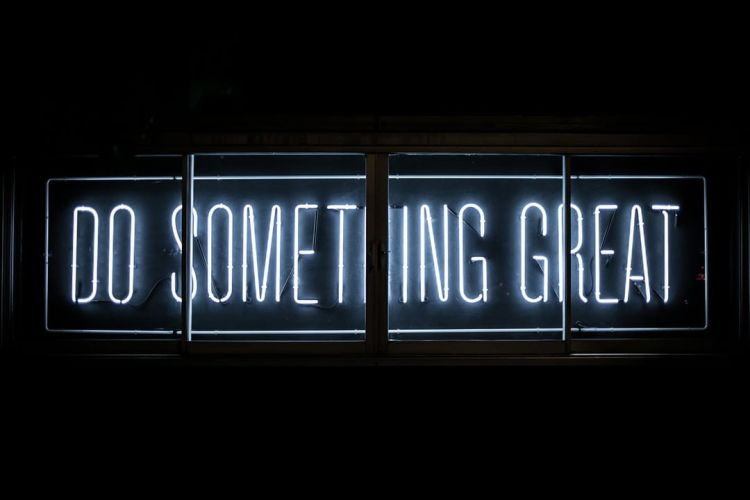Creative Professionals' Guide: Achieving Financial Independence by Monetising Art and Music - Strategies for Sustainable Income and Artistic Freedom

Key Takeaways
- Understand the importance of diversifying your income as a creative professional.
- Learn how to establish a solid online presence to showcase and sell your art and music.
- Get to grips with the business side of creativity, including budgeting, investing, and legal considerations.
- Discover the benefits of collaborations and how they can expand your reach and income.
- Read about real success stories of artists who have achieved financial independence through their craft.
Transform Your Art into Income
As a creative professional, your passion for art and music is the driving force behind your work. But let's face it: Passion alone won't pay the bills. That's where we come in. At WealthBuilders, we're committed to helping you transform your creative talents into a sustainable income. The first step is to recognise that monetising your art isn't selling out; it's smart.
The Essentials of Monetising Your Craft
Monetising your art and music is about more than just selling a painting or a track. It's about creating a brand around your creative output that resonates with people. It means thinking like an entrepreneur, understanding your audience, and positioning your art in a way that makes it desirable and accessible.
Firstly, identify your niche. What makes your work unique? Who is it for? Answering these questions will help you target the right audience. Once you've got that down, you're ready to put a price on your work. Remember, it's about covering costs and valuing your time and skill.
Forging Your Financial Path as a Creative
Creating a financial plan is like drawing a map for your artistic journey. It should outline your income goals, track expenses, and set aside savings for future projects or lean times. It's not the most exciting part of being an artist, but it's crucial for long-term success.
And remember, a financial plan is not set in stone. It should evolve as your career grows. Always be open to new opportunities and ready to adjust your strategy.
Unlock the Power of Diversification
Why Putting All Your Eggs in One Basket is Risky
Ever heard the saying, 'Don't put all your eggs in one basket'? This is especially true for creatives. Relying on a single income source is risky. Markets change, trends come and go, and what's in demand one day might not be the next. Therefore, diversification is critical.
Multiple Streams Matter: From Sales to Licensing
Think of income streams like different colours on your palette. You've got the potential to mix and match to create something sustainable. Here's how:
- Sales: Sell originals, prints, or digital copies of your work.
- Licensing: Allow businesses to use your work for a fee.
- Commissions: Create custom pieces for clients.
- Teaching: Share your skills through workshops or online courses.
- Merchandise: Turn your designs into products like t-shirts or phone cases.
Each of these streams can contribute to your financial independence, but managing them well is essential. Keep track of what's bringing in the most income and adjust your focus as needed.
Workshops, Merch, and Beyond
Workshops and merchandise are compelling because they can create ongoing revenue. A workshop can be recorded and sold as an online course indefinitely. Merchandise, once designed, can be sold with little additional effort on your part.
Most importantly, these streams can reinforce your brand and help build a community around your work. And a strong community can lead to more sales, commissions, and opportunities.

Your Online Presence: The Modern Artist's Showcase
In today's digital age, your online presence is your portfolio, business card, and shop window all rolled into one. It's the first place potential buyers, collaborators, and fans will go to discover your work. Therefore, building a solid online presence is not just recommended; it's essential.
Crafting a Website That Sells
Your website should be the cornerstone of your online presence. It's where you'll tell your story, showcase your best work, and, most importantly, sell your art and music. Keep the design clean and the navigation intuitive. Include an online store with transparent pricing and easy payment options to make purchasing your work as simple as a click.
Remember, your website is more than a gallery; it's a tool to convert visitors into customers. So, ensure you have a section for testimonials or reviews to build trust and a blog to keep your audience engaged and returning for more.
Leveraging Social Media for Maximum Engagement
Social media is not just a place to share your work; it's a platform to engage with your audience. Use it to tell the story behind your pieces, share works in progress, and announce new projects or sales. Platforms like Instagram and Pinterest are mainly visual, making them perfect for artists and musicians.
But don't spread yourself too thin. Focus on one or two platforms where your target audience hangs out and grow your presence there. Consistency is vital, so post regularly and interact with your followers to build a community around your brand.
The Art of Online Networking
Networking online can open doors to collaborations, sales, and even mentorships. Join online communities related to your niche, participate in discussions, and share your expertise. Platforms like LinkedIn can be great for professional networking. At the same time, Twitter and Instagram can help you connect with fans and fellow creatives.
And remember email marketing. Collecting email addresses from website visitors allows you to communicate directly with your audience. Send out newsletters with updates on your work, special offers, and insights into your creative process.
The Business Behind the Art
Smart Budgeting for Sustainable Creativity
Good financial management is as crucial for artists as it is for any business. Start by tracking all your income and expenses to understand where your money is going. This will help you budget effectively and ensure you're spending only what you earn.
Here's a simple breakdown of what you should consider in your budget:
- Materials and Supplies: Keep track of your spending on materials and look for ways to get them at a better price.
- Marketing: Allocate a portion of your budget for promoting your work, whether it's through paid ads or printing flyers.
- Education: Set aside funds for workshops or courses to improve your skills and stay competitive.
- Savings: Always put a percentage of your income into savings for future projects or unexpected expenses.
By managing your finances wisely, you'll have more freedom to focus on creating without the stress of financial uncertainty.
Investing in the Future: Opportunities for Creative Pros
Investing in your career as a creative can take many forms. It might mean upgrading your equipment, hiring a virtual assistant to manage administrative tasks, or investing in advertising to reach a wider audience. Consider what will have the most significant impact on your work and plan accordingly.
But don't just invest in your business; invest in yourself too. Attend industry conferences, network with other professionals, and seek collaboration opportunities. These experiences can be invaluable for your professional growth and lead to new income avenues.
Keep It Legal: Navigating Tax and Copyright
Understanding the legal aspects of monetising your art and music is vital. This includes knowing how to handle taxes and protect your intellectual property. Registering your work can prevent others from profiting from it without your permission, and keeping accurate financial records will ensure you're paying the right amount of tax.
Here's a quick guide to get you started:
- Register your works with the relevant copyright office to protect your intellectual property.
- Keep receipts and invoices for all your business-related expenses; they can often be deducted from your taxes.
- Consider hiring an accountant specialising in working with creatives to help you navigate the complex world of taxes.
Staying on top of these issues will save you headaches and ensure you run your creative business by the book.

Expand Your Reach with Collaborations
Partnering with Like-Minded Creatives
Collaboration can be a powerful tool for expanding your reach and opening new revenue streams. Partnering with another artist or musician can lead to exciting projects that combine your talents and draw in both of your audiences.
Look for collaborators whose work complements yours and whose audience might be interested in what you do. This can lead to joint exhibitions, collaborative pieces, or even cross-promotion on social media.
Commercial Collaborations: Bridging Art and Business
Commercial collaborations involve partnering with businesses to create unique works that can help both parties. This could be anything from designing a mural for a new coffee shop to creating a bespoke soundtrack for an indie game.
These projects pay well and can be a great way to get your work in front of a new audience. Just make sure to negotiate a fair contract that respects your rights as a creator.
FAQs
How Can I Start Monetising My Art?
Starting to monetise your art begins with understanding your market and positioning your work to appeal to potential buyers. Here's what you can do:
- Identify your unique style and the audience who would appreciate it.
- Create a portfolio that showcases your best work.
- Set up an online store or join platforms that cater to artists and musicians.
- Price your work appropriately, considering the time, effort, and cost of materials.
- Start networking and build relationships with potential customers and fellow artists.
What are the best platforms for selling art online?
There are several platforms where you can sell your art online, each with benefits. Some of the best include:
- Etsy: Great for handmade and unique items.
- Society6: Perfect for artists wanting to sell prints and merchandise.
- Bandcamp: Ideal for musicians to sell music and merchandise directly to fans.
- Artfinder: A marketplace for original artworks.
- Instagram: An excellent platform for building a following and selling directly to fans.
How Do I Price My Artwork?
Pricing your artwork balances valuing your time and skill and the market's price. Consider the following:
- The cost of materials and overheads.
- The time spent on creating the piece.
- Your level of expertise and reputation in the market.
- Comparable prices for similar works by other artists.
- Don't forget to factor in commission fees if you sell through a gallery or online platform.
Is Social Media Important for Selling My Art?
Yes, social media is crucial for selling art in the digital age. It allows you to:
- Reach a wider audience beyond your local area.
- Build a personal connection with your followers and potential buyers.
- Showcase your creative process and the story behind your work.
- Run targeted advertising campaigns to attract buyers.
"Social media is not just a sales tool; it's a storytelling platform where you can share your journey as an artist and connect with people who love your work." - WealthBuilders.
Can Collaborations Boost My Income?
Collaborations can significantly boost your income by:
- Exposing your work to a new audience.
- Combining skills to create unique and marketable pieces.
- Splitting costs on projects and marketing efforts.
- Opening up opportunities for more extensive and more lucrative projects.
What Should I Know About Copyright as an Artist?
As an artist, you should be aware of the following:
- Copyright automatically applies to your original work from the moment of creation.
- Registering your copyright can provide legal evidence of your ownership.
- Understand the difference between copyright and licensing agreements.
- Know how to enforce your rights if someone uses your work without permission.
How Do I Create a Budget for My Art Business?
Creating a budget for your art business involves:
- Calculating your monthly and yearly expenses for materials, studio space, marketing, etc.
- Estimating expected income from sales, commissions, and other revenue streams.
- Setting aside a portion of your income for savings and investment in your business.
- Regularly review and adjust your budget as your business grows.
What Are Some Common Mistakes to Avoid When Selling Art?
Common mistakes to avoid when selling art include:
- Underpricing your work and not valuing your time.
- Overlooking the importance of a solid online presence.
- Neglecting the power of networking and building relationships.
- Failing to keep proper records and manage your finances.
Are There Grants or Funding Available for Artists?
There are various grants and funding opportunities available for artists, such as:
- Arts Council England: Offers support for artists and creative projects.
- The National Lottery Project Grants: Provides funding for arts, museums, and libraries projects.
- Local arts foundations and councils often have funding opportunities for community-based projects.
- Residencies and fellowships that offer financial support and resources for artists to develop their work.
How Can WealthBuilders Help Me Achieve Financial Independence?
WealthBuilders can help you achieve financial independence by:
- Connecting you to a community of like-minded people who are working collaboratively to build their wealth
- Helping you to budget effectively by eliminating unnecessary expenses and being more tax-savvy
- Learning about additional ways to generate predictable streams of recurring income from assets
Join today at WealthBuilders Membership
Email:
Please let us know if you found this article helpful or interesting when you contact us. It also helps us to learn how you discovered us. Thank you for considering WealthBuilders. We are a friendly team and always happy to help.
